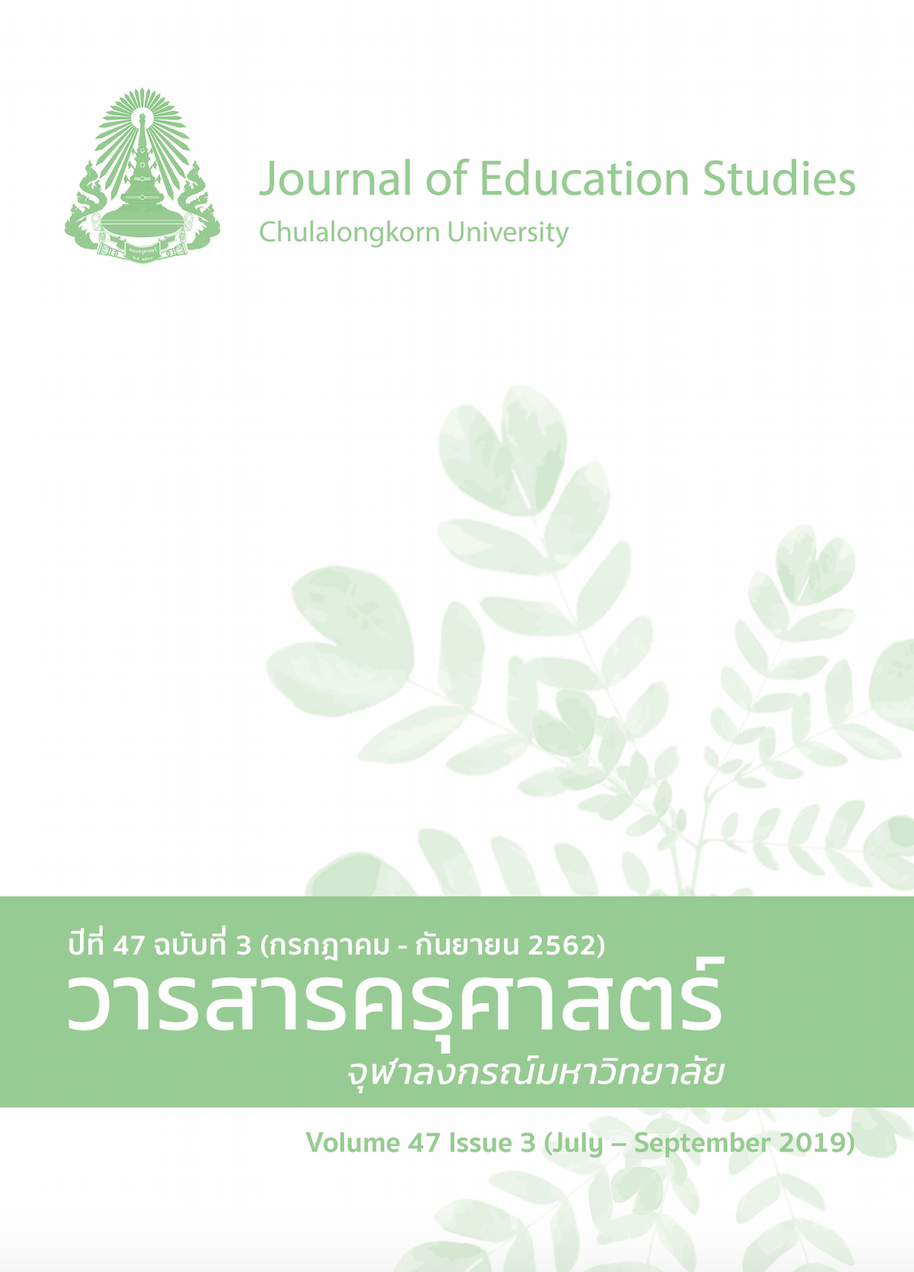Education Quality Reform Model Strengthened by Active Participation of Stakeholders for Education Effectiveness Elementary Schools
Keywords:
EDUCATION QUALITY REFORM MODEL, ACTIVE PATICIPATION, EFFECTIVENESS, ELEMENTARY SCHOOLSAbstract
The objectives of this research were to study the composition, to identify the composition and to evaluate the composition of the education quality reform with intensive participation of the stakeholder for the efficient education management in the primary school. Population were 9 people each from the Regional Fundamental Education School Committee which were totally 6,849 people from 761 schools. Research tools were questionnaires, in-depth interview form, and 3) pattern evaluation form. Data were analyzed by using mean, standard deviation, principal component analysis, and content analysis. The research findings were as followed:
- There were 4 major components of the education quality reform with intensive participation of the stakeholder for the efficient education management in the primary school which were the educational personal development reform, the curriculum and learning process production reform, the education quality assurance reform, and the evaluation and assessment reform including 15 minor components.
- The education quality reform model was a set of decision-making participation, operation, end-result acceptance, and evaluation for revising the objectives, processes, and methods in order to achieve the effective education management according to the major components.
- In overview, the education quality reform model was at a highest level of accuracy, possibility, and utilization with low standard deviation of data.
References
ภาษาไทย
กระทรวงศึกษาธิการ. (2553). คู่มือการบริหารจัดการระบบคุณภาพ. กรุงเทพมหานคร: โรงพิมพ์ชุมนุมสหกรณ์การเกษตรแห่งประเทศไทย.
จันทรานี สงวนนาม. (2553). ทฤษฎีและแนวปฏิบัติในการบริหารสถานศึกษา (พิมพ์ครั้งที่ 3). กรุงเทพมหานคร: บุ๊คพอยท์.
ธีระ รุญเจริญ. (2550). ความเป็นมืออาชีพในการจัดและบริหารการศึกษาในยุคปฏิรูปการศึกษา (พิมพ์ครั้งที่ 4). กรุงเทพมหานคร: ข้าวฟ่าง.
ปรียาพร วงศ์อนุตรโรจน์. (2553). การบริหารงานวิชาการ. กรุงเทพมหานคร: พิมพ์ดี.
เมตต์ เมตต์การุณ์จิต. (2553). การบริหารจัดการศึกษาแบบมีส่วนร่วม: ประชาชน องค์กรปกครองส่วนท้องถิ่นและราชการ (พิมพ์ครั้งที่ 3). นนทบุรี: บุ๊ค พอยท์.
ศิริพร ตันติยมาศ. (2550). รูปแบบการบริหารเครือข่ายโรงเรียนแบบมีส่วนร่วมที่มีประสิทธิผล (วิทยานิพนธ์ปริญญาดุษฎีบัณฑิต). สืบค้นจาก http://www.thapra.lib.su.ac.th/objects/thesis/fulltext/
snamcn/Siriporn_Tantiyamas_Doctor/Fulltext.pdf
สมาน อัศวภูมิ. (2553). การบริหารการศึกษาสมัยใหม่ แนวคิด ทฤษฎีและการปฏิบัติ (พิมพ์ครั้งที่ 5). อุบลราชธานี: อุบลกิจออฟเซท.
สำนักงานคณะกรรมการการศึกษาขั้นพื้นฐาน. (2560). นโยบายปีงบประมาณ พ.ศ. 2560. สืบค้นจาก http://plan.bopp-obec.info/tmp/upload/2016-04-01-09-26-53.pdf
อรวรรณ แสงสุวรรณ์. (2557). การพัฒนารูปแบบการบริหารแบบมีส่วนร่วมสําหรับระบบประกันคุณภาพการศึกษาสถานศึกษาขั้นพื้นฐานสังกัดสํานักงานเขตพื้นที่การศึกษาประถมศึกษา นนทบุรี เขต 1. ปทุมธานี (วิทยานิพนธ์ปริญญาดุษฎีบัณฑิต ไม่ได้ตีพิมพ์). กรุงเทพมหานคร: มหาวิทยาลัยนอร์ทกรุงเทพ.
ภาษาอังกฤษ
Cohen, J. M., & Uphoff, N. T. (1997). Rural development participation: Concepts and measures for project design, implementation and evaluation. New York: The Rural Development Committee Center for International Studies, Cornell University.
Shaded, W., Prins, W., & Nas, P. J. (1982). Access and participation: A theoretical approach, in participation of the poor in development. Leiden: University of Leiden.



